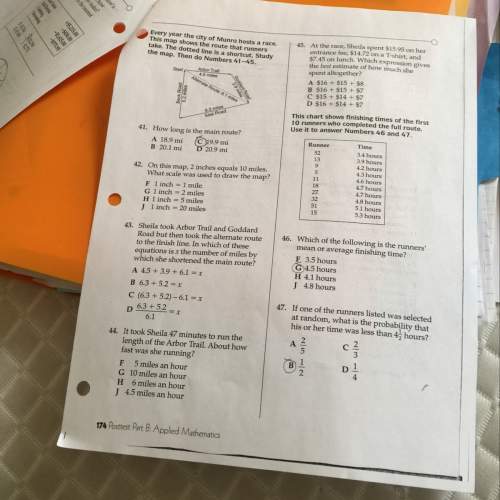
Mathematics, 15.07.2020 01:01, makennahudson94
Suppose the null hypothesis, H0, is: the mean age of the horses on a ranch is 6 years. What is the Type I error in this scenario? Select the correct answer below: You cannot conclude that the mean age of the horses on a ranch is 6 years when, in fact, it is. You cannot conclude that the mean age of the horses on a ranch is 6 years when, in fact, it is not. You cannot conclude that the mean age of the horses is not 6 years when, in fact, it is. You cannot conclude that the mean age of the horses is not 6 years when, in fact, it is not.

Answers: 2
Other questions on the subject: Mathematics

Mathematics, 21.06.2019 18:00, cici170
Each month, a shopkeeper spends 5x + 14 dollars on rent and electricity. if he spends 3x−5 dollars on rent, how much does he spend on electricity? for which value(s) of x is the amount the shopkeeper spends on electricity less than $100? explain how you found the value(s).
Answers: 2

Mathematics, 21.06.2019 20:00, mharrington2934
What are the digits that repeat in the smallest sequence of repeating digits in the decimal equivalent of 24/11?
Answers: 1

Mathematics, 21.06.2019 23:30, michaellangley
Consider the input and output values for f(x) = 2x - 3 and g(x) = 2x + 7. what is a reasonable explanation for different rules with different input values producing the same sequence?
Answers: 1

Mathematics, 22.06.2019 00:00, johnisawesome999
Mrs. blake's bill at a restaurant is $42.75. she wants to leave the waiter an 18% tip. how much will she pay in all, including the tip?
Answers: 2
Do you know the correct answer?
Suppose the null hypothesis, H0, is: the mean age of the horses on a ranch is 6 years. What is the T...
Questions in other subjects:




Mathematics, 25.02.2021 17:10













